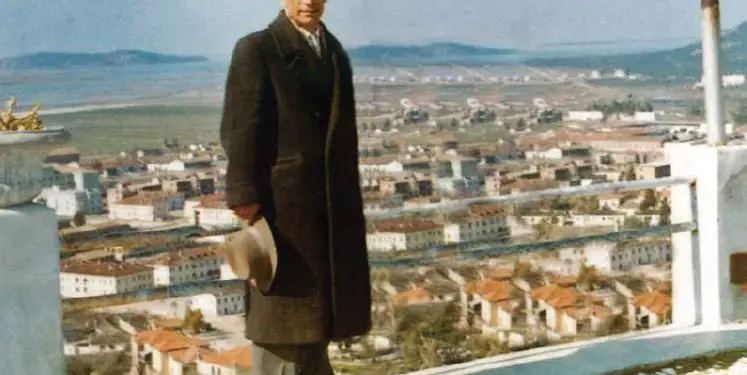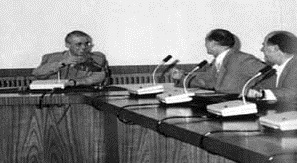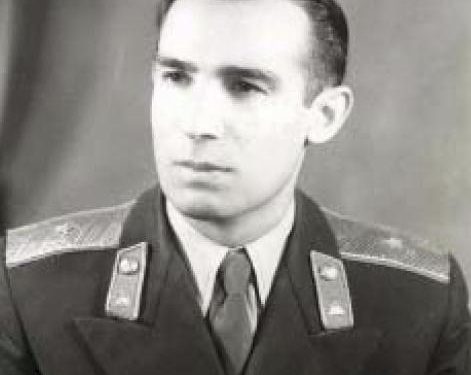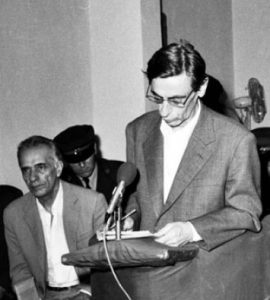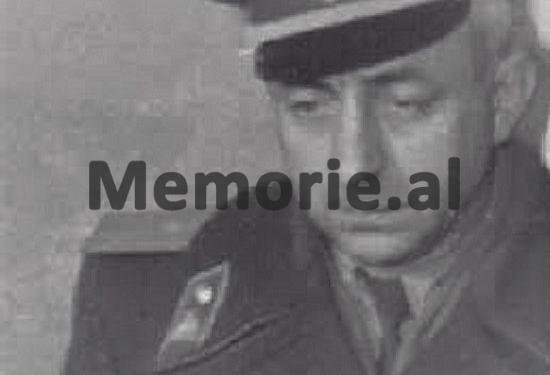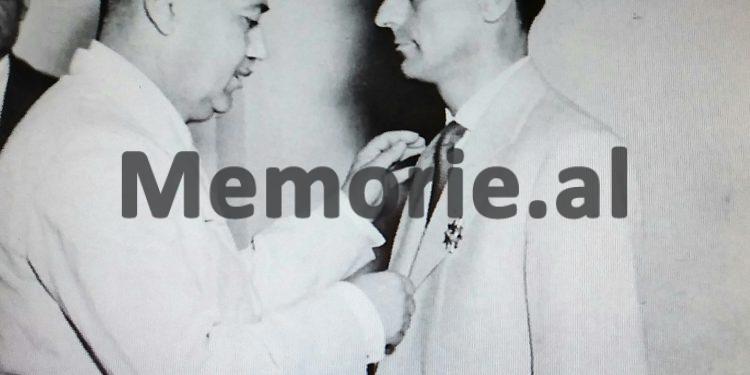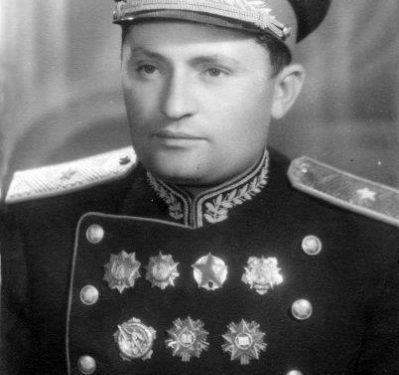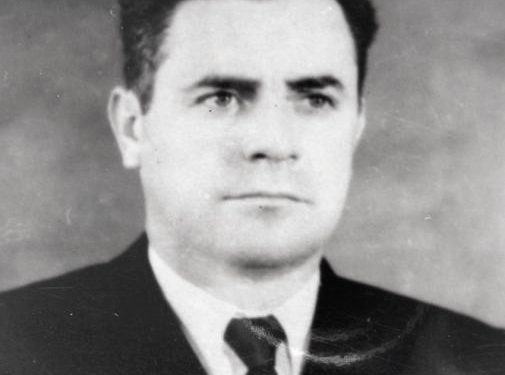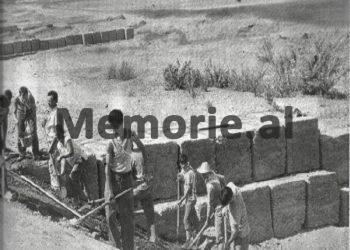Dashnor Kaloçi
Second part
Memorie.al publishes some archival documents extracted from the Central State Archive in Tirana (the fund of the former PPSh Central Committee), which belong to the year 1982, where there is a file with relations, reports, instructions, information, letters , notes, minutes of meetings of the Political Bureau, the Secretariat of the Central Committee, etc., regarding the “hostile activity” of the member of the Political Bureau and the Minister of People’s Defense, Kadri Hazbiu, (who for three decades in a row had held the post of the Minister of Internal Affairs), as well as some of his closest collaborators, such as: Feçor Shehu, Mihallaq Ziçishti, Llambi Peçini, Zoi Themeli, etc., who were accused by Enver Hoxha, as “the main collaborators of the polyagent Mehmet Shehu”. In the file in question, there is also a document with the self-criticism of Kadri Hazbiu, which is dated September 27, 1982, sent to Enver Hoxha and the Political Bureau of the Central Committee of the PPSh, regarding “his poor work, at the head of the Ministry of Internal Affairs and the lack of vigilance, for not discovering hostile groups, all of which the party and Comrade Enver had discovered”. In the 24-page document, the former head of the Ministry of the Interior, who served in that post from 1953 to 1980, writes: “There from the beginning of September when I was getting my hair cut, a driver who works with the lines comes to me of transport abroad and tells me that, on the way back from abroad, the drivers had spoken ill of my fate. I didn’t ask him what he had been told, but I told him to go and report it where it should be. He added in more detail that he had spoken to the companion who stays with me, which I ordered him to report. He told me that he had done this. I don’t know whether I told him about this case or not, friend Hekuran. After a few days when I returned from a 3-4 day service, to my family for the first time, they told me that they are taking us on the phone and so on, in meetings they ask about you, where are you and how are you, because we heard things not good, as if we have escaped as a family abroad, as if I have been dismissed from my position as Minister of Defense, etc. I told you that anyone who asks about us, you say we are fine and don’t engage in further conversation. I emphasize that these things have spread so much that even one of the workers who serves in my family left unexpectedly and disobeyed, that something is happening with me and my family. All these things, I told my friend Ramiz, along with my opinion that there is not enough fight against these harmful slogans and that they are spreading from Tirana in the first place”. For more about this, we know the 24-page document, with the self-criticism of the former Minister of Internal Affairs, Kadri Hazbiu, (where Enver Hoxha has written notes on each page), which is made for the first time publicly from Memorie.al
Continues from last issue
The document with the self-criticism of the former Minister of Internal Affairs, Kadri Hazbiu, sent to Enver Hoxha and the Political Bureau of the PPSh Central Committee, on September 27, 1982
In these circumstances, I understand the responsibility I have for their movements, which, as it turns out, were made from one place to another, according to the interest of the chief agent Mehmet Shehu and his bosses. Let all the responsibility fall on me for this too, but some fellow secretaries of the Central Committee who dealt with the Ministry of Internal Affairs and the staff are also responsible for these assessments.
I do not say this to excuse myself, but for some of these enemies such as: Zoi Themeli, Halim Xhelo, Gjin Marku, Maqo Çomo, Panajot Plaku and others, I have had the opinion that they should not be in the Ministry of Works Internally, not even for their past, but also for incapacity at work and lack of character. These opinions were not taken into account even under the influence of Mehmet Shehu and Beqir Balluk.
Until recently, I have not known anything that Mihallaq Ziçishti has sought to escape from Sigurimi himself, nor for issues of moral character that have been identified. Likewise, I did not know that Feçor Shehu had accused me of being a Trotskyist at the time of Koçi Xoxes, or that there were talks about the moral side around him.
These are not all, but if I knew them, I would probably have been helped a little in their assessment. I have criticized these enemies because they talked, did not work systematically, had signs of arrogance, etc. I did not fail to record these in front of my friends when it was necessary.
The good thing is that such things should not only be well documented and refreshed from time to time, but also alert those to whom they belong. These are norms, but also constant orders of Comrade Enver. It is necessary to implement them.
The members of the Politburo were familiarized with the material that talks about the relations of our Ministry of Internal Affairs with the Ministries of Internal Affairs of the Soviet Union and other revisionist countries, as well as our attitude and work towards them, as if we were on good terms with them and later when we broke up.
I will try to explain, as far as I know and remember and as I reflect now:
From the beginning, I say that the official relations between our Ministry of Internal Affairs and the countries that were mentioned above, have been in their entirety without written agreements and documents, without well-defined and documented borders, and internally they have been one-sided (especially with the Soviets, where we gave data and they didn’t, or gave completely irrelevant data)!
These relations were built in this way, as I judge now, because the need for help, especially from the Soviets, for the organization and improvement of our Internal Affairs bodies, as well as for the necessity of maintaining the purity of our military and civilian students who were being educated, was exaggerated then en masse in these countries.
This was one reason, while the other was the absolute trust that we had at that time towards Stalin’s Soviet Union and his people. How were these created and expanded? Perhaps it is worth giving these explanations:
As far as I know, they started in 1947 with the sending of a group of 5 people, of which I was also a part, to study at the Security schools in the Soviet Union. After 7-8 months, when we returned, we learned that near the Soviet embassy, there was a specialist advisor to help the Security agencies.
Mehmet Shehu was in touch with him as a minister, and later we also got to know each other, especially when he started coming openly to the ministry. We, as heads of sectors, gradually got into working contact and asked him for his opinions on various issues. I don’t know after how long (1950-1951), this advisor (Glaskovi), left, as we were told, because he was sick and could not cope with the large volume of requests arising in the affairs of the ministry.
It didn’t take but a few months and a large number of advisors arrived, who officially worked in the Ministry of Internal Affairs in every sector of Security (including Intelligence), Police, Border, as well as the two political branches that were then for Police and the Border. In the Internal Affairs bodies in the districts, there were no advisers, while near the border brigades, yes.
They had the right to be known even by translating them as documents, with everything that had to do with the agency, with the structure, with regulations, laws and internal norms, including the platform. As far as I remember, they had no right to get to know the personnel files.
On what agreement all this work was done, what relationship limits were set and if all this was documented, I don’t even know today. In fact, these advisors had the door open both for those issues that asked for their opinion, as well as for what they were interested in knowing, especially “for the exchange of experience and enrichment of materials”, which are given in their schools, where our cadres who at that time they went to mass.
In the relations with them, there was uncertainty as to how far they had the right to go out, that’s why there have been clashes with some of our cadres. I remember that there was a case of exactly this nature between me and the chief councilor about which, after we did not agree with Mehmet Shehu, who was a former minister, he took the matter to the Political Bureau, where I was also called.
The Political Bureau criticized me and ordered me to work as best as possible. This happened in the years 1949-1951 and for accuracy you can see the materials of this meeting. Since this period, relations of “cooperation” have been established between our Security and that of the Soviet Union and other countries, where our people studied, for the preservation of their purity.
With this task, our counter-intelligence cadres were sent to the embassies in Moscow and to one or two revisionist countries (I don’t remember), who had the task of keeping in touch with the collaborators who were among the students and coordinating with the relevant bodies of the country problems related to our students.
Over time, I don’t know the year, our cadres in these countries were allowed that when it was necessary or difficult to keep in touch, our collaborators could make them known or even give them a connection to the country’s bodies, especially those of the Soviet Union.
In addition to these, already at this time the relations for the figure were also established. The state cipher and instructions for its use were produced in the Soviet Union and came ready-made, while the ciphers were prepared here in the country. In general, this is how these relations were built since former minister Mehmet Shehu.
When I became a minister, the same practice continued, until the middle of 1960, when Comrade Enver ordered me to close the faucet to the advisers and to limit everything gradually until cutting all relations with them and their bodies. This was done and clashes began with these advisers until they left and our cadres returned, this time may be from the beginning or the middle of 1961.
I cannot explain with the memory I have, whether or not Llambi Peçini was authorized to officially give the Russians the materials contained in the list. Normally and according to practice, such a document should have been signed by me or a deputy minister. In addition, I have had and have it in my practice that in every document, I put notes or sigla.
I believe that this shipment was made on my back and with a specific purpose. I say this because there was no need for such an official delivery since, as we explained above, the counselors who were in each sector had the opportunity to choose and receive the materials that the school required for the preparation of our staff.
Until 1960, there were also meetings of the Ministers of Internal Affairs, a total of two, one in Moscow and one in Prague. The latter from the middle of 1960. In these meetings, no details were given, but considerations were made on the assessment of the external situation and, in connection with it, also exchanges of opinions to better coordinate actions on the detection of capitalist agencies. Memorie.al
The next issue follows




